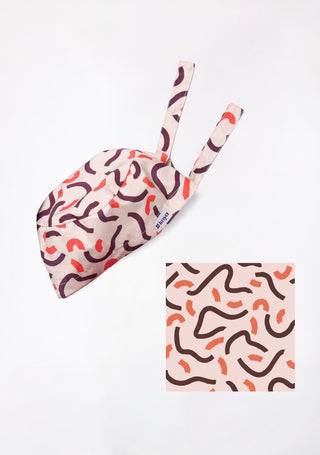A stethoscope isn’t just a medical tool—it’s an extension of a healthcare professional’s expertise. Whether you're a medical student, nurse, or seasoned physician, choosing the right stethoscope can make a significant difference in diagnosis and patient care. But with so many options flooding the market, how do you pick the best one?
Don’t worry—we’ve got you covered! This ultimate guide will break down everything you need to know about choosing the perfect stethoscope based on your medical education level and specialty. Get ready to make an informed choice that boosts both accuracy and confidence in your practice!
Your stethoscope is one of the most frequently used tools in your daily routine, making its quality and functionality crucial. A well-chosen stethoscope ensures you capture even the subtlest sounds, leading to precise patient evaluations. Whether you’re performing a routine check-up or diagnosing complex conditions, the right stethoscope can be a game-changer. Investing in the right one not only enhances your skills but also contributes to improved patient outcomes
Why Choosing the Right Stethoscope Matters
A stethoscope is more than just a piece of equipment hanging around your neck—it’s a crucial diagnostic tool that helps you:
- Detect heart murmurs and irregularities
- Assess lung function and detect abnormalities
- Monitor bowel sounds
- Enhance overall patient assessment accuracy
A low-quality stethoscope can lead to missed diagnoses, unclear sounds, and frustration. That’s why investing in the right one is essential for your medical career. The right stethoscope ensures clarity, reducing the risk of misinterpretation and enhancing your confidence during assessments. It also provides longevity, meaning you won’t have to replace it frequently. Moreover, a well-chosen stethoscope adds professionalism to your practice, signaling your commitment to quality patient care. With so many options available, making an informed decision can greatly impact your efficiency and effectiveness as a healthcare provider.
Discover the best lab coat designed for comfort and protection. Shop from here.
Types of Stethoscopes: Which One is Right for You?
Different specialties and levels of medical education require different types of stethoscopes. Let’s break them down:
1. Acoustic Stethoscope (Best for Medical Students & General Practitioners)
- Traditional and widely used
- Great for general assessments
- Affordable and reliable
2. Cardiology Stethoscope (Best for Cardiologists & Internal Medicine Specialists)
- Superior acoustic quality
- Noise-canceling features
- Ideal for detecting subtle heart sounds
3. Pediatric & Neonatal Stethoscope (Best for Pediatricians & Neonatal Nurses)
- Smaller chest piece for enhanced sound clarity in children
- Designed for sensitive, low-frequency sounds
- Available in fun colors to comfort young patients
4. Electronic Stethoscope (Best for Advanced Diagnostics & Telemedicine)
- Converts sound waves into electronic signals for amplification
- Reduces ambient noise for crystal-clear auscultation
- Ideal for remote monitoring and AI-based diagnostics
5. Teaching Stethoscope (Best for Medical Instructors & Students)
- Dual-headpieces allow two people to listen simultaneously
- Ideal for hands-on learning and mentorship
Comfort meets style. Explore All Women's Scrubs and discover the perfect fit for your busy day.
How to Pick the Best Stethoscope for Your Needs?
Here’s what you should look for when buying a stethoscope:
1. Acoustic Quality & Sound Clarity
- Opt for a stethoscope with high sound fidelity, especially for cardiology and internal medicine.
- Dual-lumen tubing minimizes external noise interference.
2. Comfort & Fit
- Choose soft, sealing ear tips for better sound isolation.
- Consider the weight—lightweight stethoscopes reduce neck strain.
3. Durability & Material
- Stainless steel chest pieces provide superior sound transmission.
- Latex-free tubing is ideal for those with allergies.
4. Budget & Brand Reliability
- Invest in a well-known brand like Littmann, MDF, or ADC for longevity and precision.
- Balance cost and features based on your medical specialty.
5. Customization & Upgradability
- Some stethoscopes allow for diaphragm and tubing upgrades.
- Personalized engraving adds a professional touch and prevents loss.
Final Thoughts: The Right Stethoscope Elevates Your Medical Practice
Choosing a stethoscope is a long-term investment in your medical career. Whether you’re a beginner or a specialist, the right stethoscope enhances your ability to diagnose and treat patients effectively. Don’t settle for less—pick the best stethoscope that aligns with your expertise and specialty.
Now that you know how to choose the perfect stethoscope, are you ready to take your medical journey to the next level? Shop smart and listen better!
The right stethoscope not only improves patient care but also boosts your confidence as a healthcare professional. Take your time, compare features, and invest wisely in a tool that will support your career for years to come. Happy auscultating!





















































